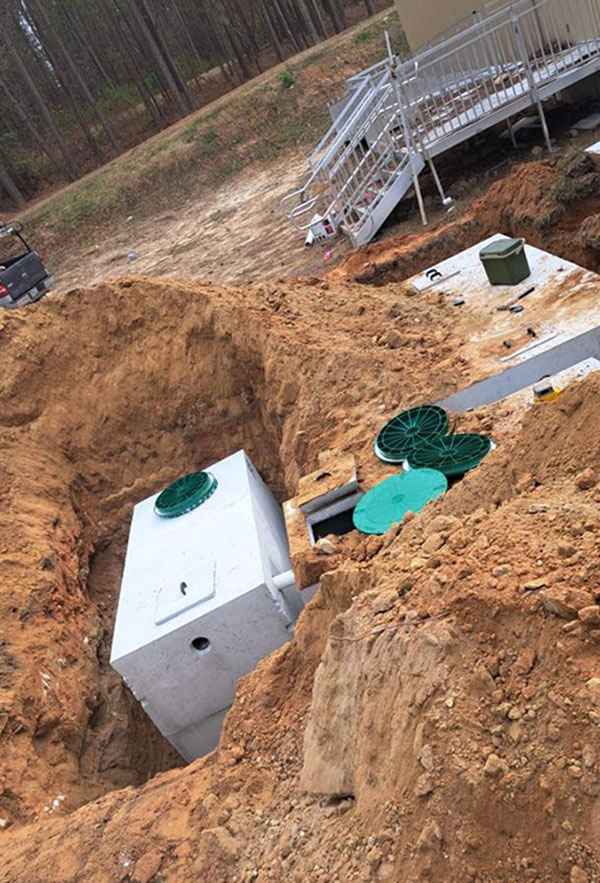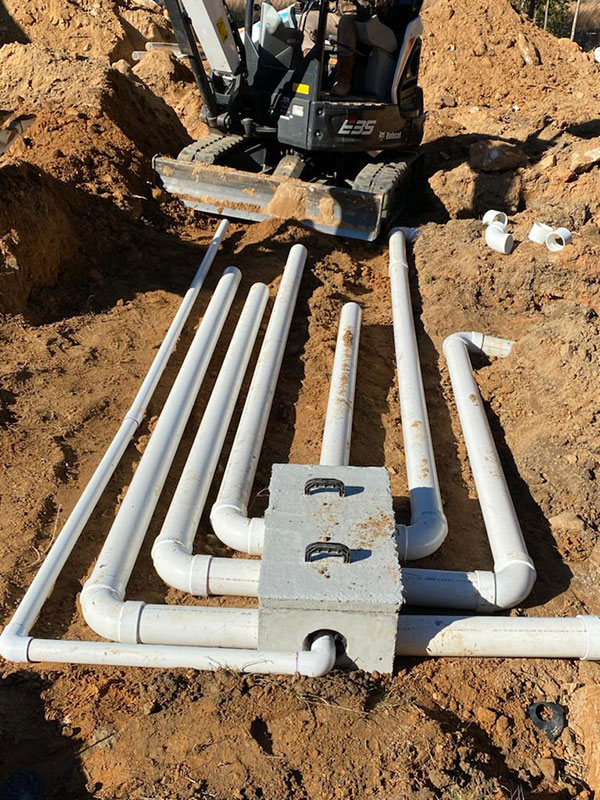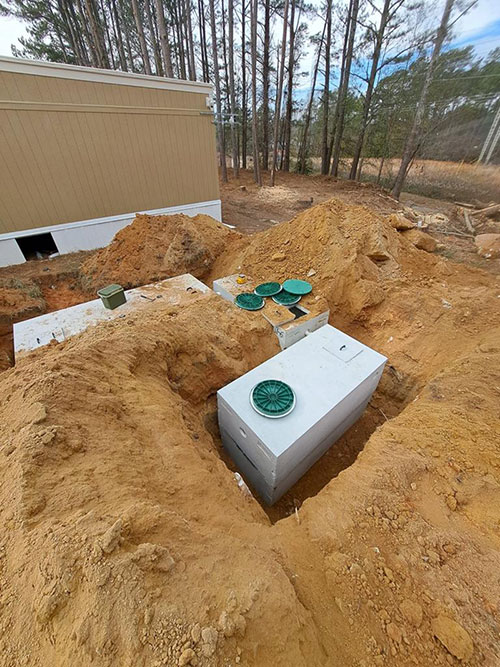Best Commercial Septic System Installation in Atlanta and Surrouding areas

Commercial Septic System Installation
The infrastructure of any commercial facility construction is crucial. If you already own or just purchased a new commercial property especially in Atlanta, you are more than well aware of the requirements for starting construction.
The property is considered commercial if it has a commercial use rather than private. Unlike residential property, commercial facility is only utilized for commercial or financial concerns.
Examples of commercial properties are:
- Residential Flats
- Stores
- Motels
- Offices
- Industrial facilities
- Laundromat
- Churches
- Schools
- Gas stations
- And many more
Let’s delve into the things you should know about commercial septic or sewage systems.
What is a Commercial Septic System?
A commercial septic system is considered a large-scale sewage system that is capable of treating commercial wastewater that comes from these facilities. The ordinary septic system does not meet the needs of the commercial system.
Why do we need a Commercial Septic system?
A commercial septic or sewage system is needed where there is no public drainage system available for disposal. For this purpose, the only solution is on-site septic system installation.
A commercial septic system is installed to overcome the situation to deal with ordinary sewage systems. On the other hand, it is also installed as an innovation in wastewater treatment and as well as to deal with the small-scale septic system, which does not meet the need for a large-scale water disposal system.
Factors involved in commercial septic installation
General Inspection of the commercial system
In Atlanta the general Inspection includes the assessment of the site conditions. Additionally, in general, Inspection, plumbing, leakages, and surge lines are also identified by the inspection team.
Complete Inspection for a commercial system
Atlanta complete Inspection includes an overall diagnosis of the entire area where the commercial system is to be installed. All companies and concerned authorities highly recommend it. The Inspection is carried out with special equipment and tools because this Inspection provides all necessary reports for the r installation of the commercial system. It also provides the capacity and all commercial codes, recommendations, and permits issued by authorities.
Installation Steps of Commercial System in Atlanta
Installing a commercial septic system is a complex process that typically requires professional expertise.
- Site Evaluation
- Soil testing
- System Design
- Excavation on site
- Septic Tank Installation
- Distribution System Installation
- Drain Field Installation
- Final Inspections and Testing
- Landscaping
- Maintenance and Operation
The following steps provide a brief overview, but it’s important to consult Atlanta local authorities environmental health department, soil engineers, and septic system professionals to ensure compliance with regulations for specific site conditions.

Site Evaluation
• Hire a soil engineer to conduct a site evaluation to assess soil characteristics, water table levels, and other relevant factors.
• Obtain necessary permits from GA environmental health department or Atlanta environmental authorities.
System Design
• Work with a qualified septic system designer to create a system that meets Atlanta regulations and accommodates the property’s needs.
• Choose the appropriate tank size, drain field layout, and other components.
Excavation on site
• Excavate the area for the septic tank and drain field according to the design specifications.
• Ensure proper setbacks from buildings, property lines, and water sources.
Septic Tank Installation
• Lower the septic tank into the excavated hole using appropriate equipment.
• Connect the inlet and outlet pipes, ensuring a watertight seal.
• Backfill the area around the tank, taking care not to damage the tank or pipes.
Distribution System Installation
• Install distribution boxes, pumps (if necessary), and pipes leading to the drain field.
• Ensure proper slope and alignment to facilitate the flow of effluent.
Drain Field Installation
• Excavate trenches for the drain field pipes.
• Lay perforated pipes in the trenches, covering them with gravel or other approved materials.
• Cover the drain field with soil, taking care not to compact it excessively.
Ventilation and Inspection Ports
• Install ventilation pipes to allow gases to escape from the septic system.
• Install inspection ports for easy access to the system for maintenance and inspections.
Final Inspections and Testing
• Ensure proper site inspections with Atlanta authorities for regulations compliance.
• Perform necessary tests, such as a percolation test, to assess the system’s functionality.
Landscaping
• Ensure restoring the landscape around the sewage system to avoid any type of soil erosion.
Maintenance and Operation
• Educate property owners of Atlanta on proper septic system maintenance and operation.
• Establish a regular inspection and maintenance schedule.
Cost of Commercial Septic System
The cost of a commercial septic system can vary according to its installation criteria especially in Atlanta. The cost factors mainly include size, standard conditions, and ground conditions. After the determination of these factors, contact Easy Clean Septic for a quote
Maintenance of Commercial Septic System
After installing a commercial septic system, the major key step is its maintenance. Managing its maintenance is also a crucial task. In this task, all costs should be considered carefully, including any equipment to its operation. Ensure its daily basis maintenance to avoid any issues during its operation.
Some commercial systems were submerged deep. These systems were composed of a variety of mechanical parts. Their wear and tear cost was so high. However, in the modern era, commercial systems have a few parts in them.
There are a lot more people in Atlanta using commercial sewage systems than residential septic systems. So, a commercial wastewater system needs more maintenance than a residential septic system. You should need to evaluate your septic tank system depending on type of commercial septic system. To determine how often you need to service you should contact a professional septic company Easy Clean Septic.

Conclusion
The installation of a commercial septic system involves a series of critical steps, including site evaluation, soil testing, system design, excavation, installation of septic tanks and distribution systems, and the creation of a drain field. Compliance with local regulations, thorough testing, and inspections are essential.
The process concludes with landscaping and ongoing maintenance, with property owners playing a vital role. Professional expertise is crucial throughout to ensure the system’s efficiency and compliance with environmental standards.
Schedule Your Commercial Septic System Installation in Atlanta and Surrounding Areas Today
Don’t let a minor problem grow into a large one. Get an inspection right away.to guarantee the health and effectiveness of your system. Contact us now to book an appointment with our expert team.
